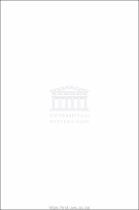Discourses on Racism
Abstract
A central aim of this study is to examine the meanings which (i) a group of South African psychologists and (ii) a group of Black parents give to racism in their discourses and how these meanings are linked to existing relations of domination. To this end the discourses on racism produced by the former in various journal articles and the latter in various group discussions are submitted to analysis. The study basically utilizes the following working hypotheses as its point of departure: (i) that the discourses produced by the group of psychologists - in so far as they could broadly be seen as being representative of prevailing dominant discourses - would, to varying degrees, reflect attempts to legitimate and reinforce the relations of domination which the ideology of racism entails; and (ii) that despite certain similarities between
. dominant group discourses and dominant group discourses on racism, the latter's discourses would, to varying degrees, be the site of resistance against dominant group discourses as well as against their domination. The findings of the study seem to support the basic postulates contained in the two working hypotheses presented above. More specifically, the analysis of the discourses collected reveals (i) that, though ostensibly very disparate, the discourses produced by the group of psychologists, by and large, appear to justify and dissimulate the asymmetric relations of power which the ideology of racism maintains; and (ii) that despite the similarities between dominant group and dominated group discourses the latter, in a variety of ways, undermine the ideology of racism as well as dominant group discourses on the ideology. The study concludes with an examination of the suggestions emerging from the discourses analyzed ,regarding how racism as it manifests itself in South Africa can be combatted and eliminated.

